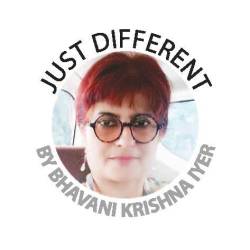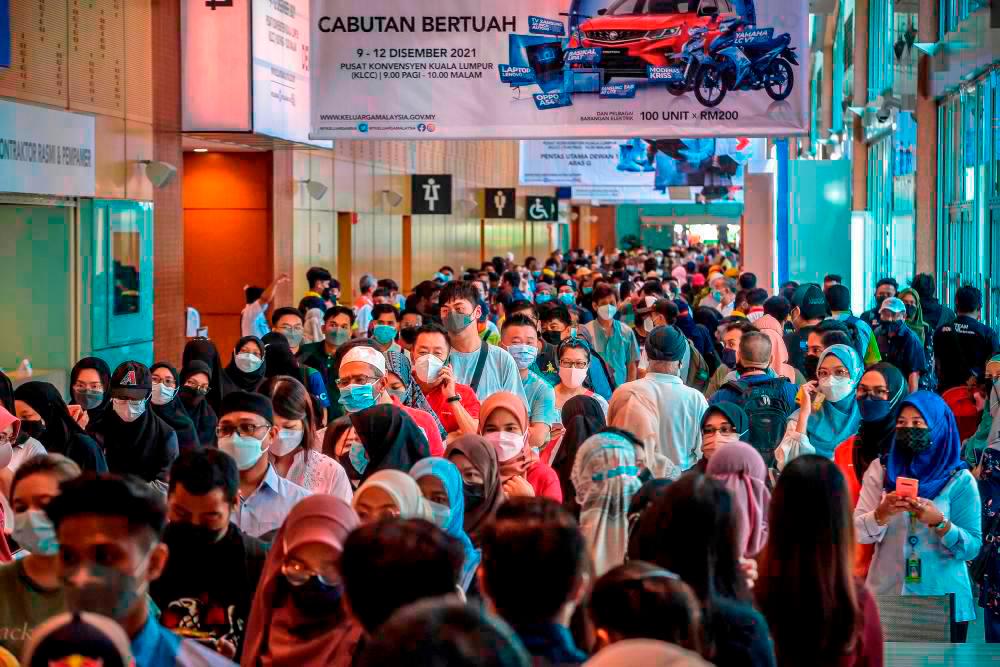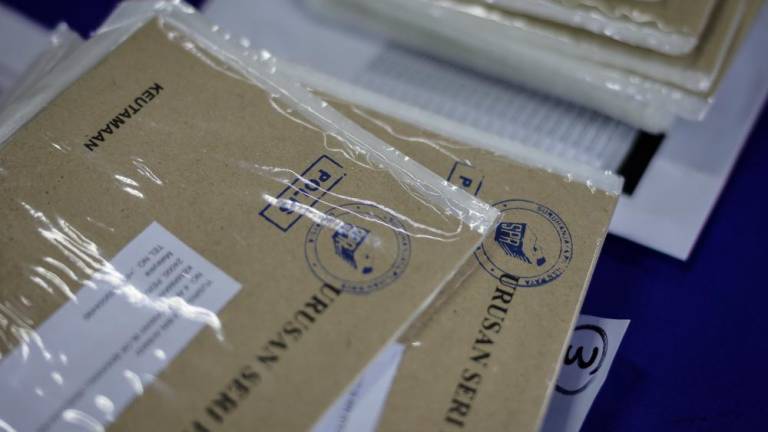DURING a recent visit to the immigration office, I encountered a man in his forties seeking assistance with a seemingly straightforward form. Despite his well-dressed appearance and educated demeanour, he quietly disclosed his inability to read or write, presenting an OKU card indicating a learning disability.
Rather than delving into further inquiries, I offered my help. This encounter illuminated a pervasive reality that there are countless individuals like him, concealed from public view and often subject to misunderstanding.
Witnessing this scenario evoked a sense of compassion and a hint of guilt for my initial assumption that he was merely choosing ignorance over effort when it came to form completion.
As we observe International Day of Persons with Disabilities (IDPD), which is celebrated annually on Dec 3, it serves as a poignant moment to reflect our current status in terms of inclusivity, and to ponder on the additional steps that can be taken to support those with disabilities, especially those that remain obscure or hidden from societal awareness.
The IDPD is celebrated to promote the rights and well-being of persons with disabilities in every aspect of society and development. The day also seeks to increase awareness of the situation of persons with disabilities in all aspects of political, social, economic and cultural life.
The theme this year is “Transformative solutions for inclusive development: the role of innovation in fuelling an accessible and equitable world”. The theme highlights the importance of innovation in creating a more inclusive and accessible world for persons with disabilities.
Unless we have a disabled person within our circle, IDPD will pass on as just another day, more so when it comes to disabilities which are uncommon or not visible.
For example, among the myriad of challenges individuals face, learning disabilities such as dyslexia and auditory processing disorder often conceal themselves, contributing to misdiagnosis and creating hurdles in academic, professional and social realms.
These conditions, characterised by an absence of outward peculiarities, operate in subtle ways, complicating the identification process and impeding the recognition of unique strengths within affected individuals.
As these hidden obstacles persist, a deeper understanding and a more nuanced approach are essential to unveil the untapped potential that lies beneath the surface, waiting to be discovered and nurtured.
Mental health disabilities are another example, where conditions such as anxiety and bipolar disorder are frequently stigmatised, resulting in discrimination and difficulties in accessing adequate support.
Chronic pain, lasting over six months and caused by conditions such as arthritis, is often met with disbelief, and access to proper treatment is limited, and this, too, can be regarded as a disability.
Meanwhile, veiled incapacities, such as autism and ADHD (Attention Deficit Hyperactivity Disorder), may require significant effort for individuals to appear “normal”, leading to marginalisation and unfair branding and generalisations.
These examples underscore the prevalence of ignored disabilities, each presenting unique challenges. Recognition of these challenges is
vital, as individuals with disabilities encounter various hurdles that demand support and understanding.
The lack of awareness often leads to misconceptions, discrimination and prejudice. Educating people about disabilities is crucial, encompassing information on different disability types and their impact, and fostering inclusivity in society.
Various strategies can enhance disability education, such as integrating awareness into school curricula, providing comprehensive training for professionals working with individuals with disabilities and launching public awareness campaigns to dispel myths, and promote understanding. These efforts can create an inclusive society for everyone, regardless of the disability.
Individuals can contribute by volunteering at organisations supporting people with disabilities, reading extensively about disabilities to deepen their knowledge and engaging in conversations with individuals who have disabilities to break stereotypes and appreciate the diversity within the disability community.
By collectively taking these steps, society can actively participate in creating a more inclusive world for everyone.
A brief examination of public infrastructure and facilities in Malaysia reveals that our commitment to inclusivity seems to be caught in a dance of idle fingers and resonating words on our lips.
While we are caught up with technology and innovation, disabled persons are often overlooked as stakeholders. A case in point is the implementation of the fully automated token system at a public hospital in Kuala Lumpur, where payments are made at the kiosk. Has due consideration been given to individuals with reading disabilities when it comes to operating the machine, especially when there is no human intervention provided at the kiosk?
While technology and innovation make things more convenient, the question remains: do they enable or further incapacitate individuals with disabilities?
Comments: letters@thesundaily.com











